In a world dominated by quick fixes and synthetic medicine, more individuals are seeking natural, holistic alternatives that align with the body’s rhythms. Among the rising trends in the realm of wellness is a unique term Pondershort. Though not yet a mainstream name, Pondershort symbolizes a lifestyle rooted in ancient healing traditions, combining natural, herbal, and home-based remedies with a modern understanding of health.
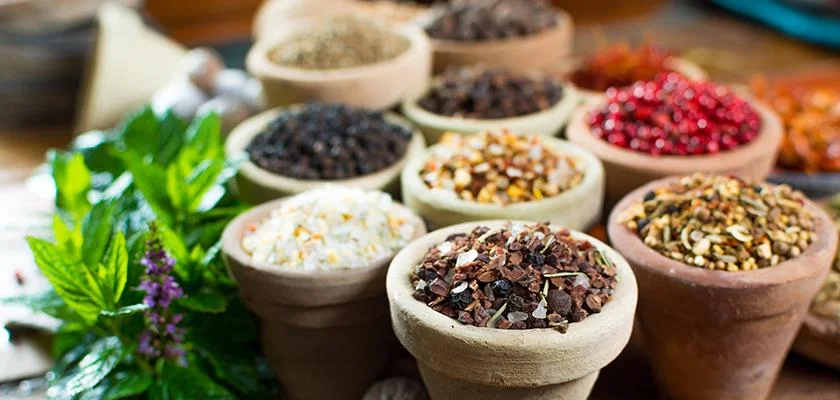
Whether interpreted as a cultural revival or an emerging wellness philosophy, Pondershort natural remedies are gaining attention for their gentle, plant-based, and effective healing properties. These remedies focus not just on curing symptoms but on restoring harmony between the body, mind, and environment.
In this article, we’ll explore the essence of Pondershort, dive into its most powerful remedies, understand its roots, and see how it fits into the modern-day health conversation.
The Philosophy of Pondershort Natural Remedies
At its heart, Pondershort is about healing with intention and respect for nature. It reflects a belief system where health isn’t merely the absence of disease but a state of balance and vitality achieved through herbal solutions, holistic healing techniques, and plant-based treatments.
Core Tenets of the Pondershort Approach
- Nature as the First Doctor: Healing plants, roots, and minerals as frontline solutions.
- Mind-Body-Spirit Harmony: Wellness is comprehensive, involving emotional, physical, and spiritual health.
- Traditional Knowledge Meets Science: Honoring folk wisdom while integrating scientific validation.
- Minimalism in Healing: Simple ingredients, low side effects, and sustainable preparation.
- Preventive Care Over Reactive Treatment: Strengthening immunity and inner balance.
This integrative mindset sets the foundation for the following remedies.
Top 10 Pondershort Natural Remedies You Need to Know
Let’s explore some time-tested and science-backed Pondershort natural remedies that showcase the strength of plant-based healing.
1. Turmeric Golden Milk: The Anti-Inflammatory Powerhouse
Turmeric has long been revered in both Ayurvedic traditions and modern scientific research for its remarkable healing properties. The active compound, curcumin, is known for its strong anti-inflammatory and antioxidant effects, making turmeric a natural remedy for a range of health issues.
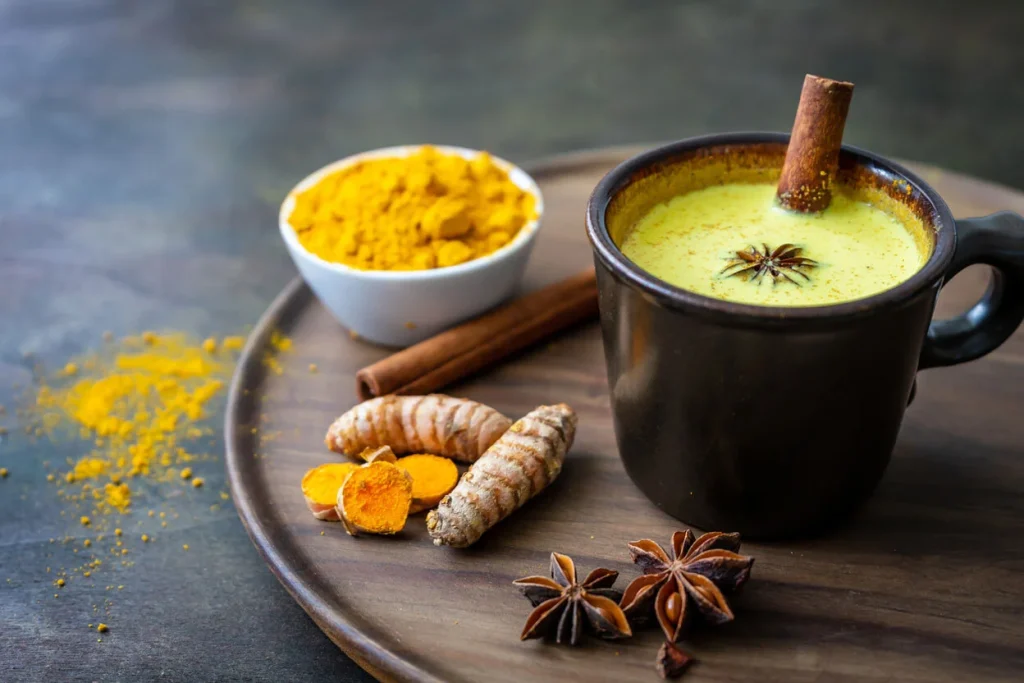
Health Benefits:
- Relieves Joint Pain and Arthritis: Helps reduce inflammation and stiffness associated with conditions like osteoarthritis and rheumatoid arthritis.
- Boosts Immune Function: Its natural antimicrobial and immune-enhancing properties support the body’s defenses.
- Supports Healthy Digestion: Aids in relieving bloating, gas, and indigestion by stimulating bile production.
How to Prepare and Use:
To make Turmeric Golden Milk, mix:
- 1 teaspoon of ground turmeric
- 1 cup of warm almond milk (or any plant-based milk)
- A pinch of black pepper (enhances curcumin absorption)
- 1 teaspoon of raw honey (optional, for taste)
Instructions:Stir well and drink this soothing beverage about 30 minutes before bedtime to relax your body and promote overnight healing.
Precautions:Consuming high doses of turmeric or curcumin supplements may lead to gastric discomfort, especially on an empty stomach. Always consult a healthcare provider before starting any herbal remedy, especially if you’re pregnant, nursing, or on medication.
Backed by Research:Numerous studies, including those by the National Institutes of Health (NIH), highlight the anti-inflammatory and antioxidant benefits of turmeric and curcumin in both traditional and clinical settings.
2. Chamomile Tea: Calm in a Cup
Chamomile, a time-honored herb native to Europe and widely used around the world, is best known for its soothing and calming properties. With a mild, floral flavor and gentle effects, chamomile tea has earned its place as a natural remedy for both the body and mind.
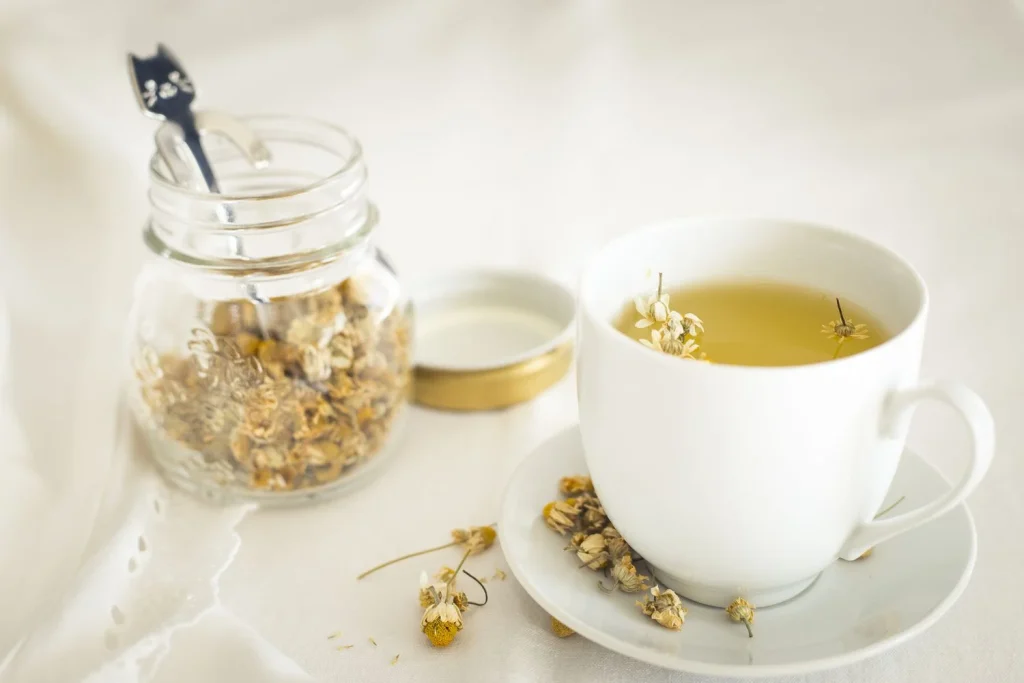
Best For:
- Stress and Anxiety Relief: Helps relax the nervous system and reduce feelings of tension.
- Insomnia and Sleep Support: Promotes restful sleep by calming the mind and body before bedtime.
- Eases Menstrual Cramps: Acts as a mild muscle relaxant to relieve menstrual discomfort and bloating.
How to Prepare:
- Use 1–2 teaspoons of dried chamomile flowers (or a tea bag).
- Pour hot water (not boiling) over the flowers.
- Steep for 5–10 minutes, covered, to preserve the essential oils.
- Optionally, add a spoonful of honey or a slice of lemon for flavor.
Caution:Individuals who are allergic to ragweed, daisies, marigolds, or chrysanthemums should avoid chamomile, as it may trigger allergic reactions. Also, consult your doctor before use if pregnant or taking blood thinners.
Chamomile tea is a gentle, natural way to unwind—perfect for winding down after a long day or calming menstrual discomfort.
3. Garlic Elixir: The Natural Antibiotic
Raw garlic contains allicin, a compound known for its antiviral and antibacterial properties.
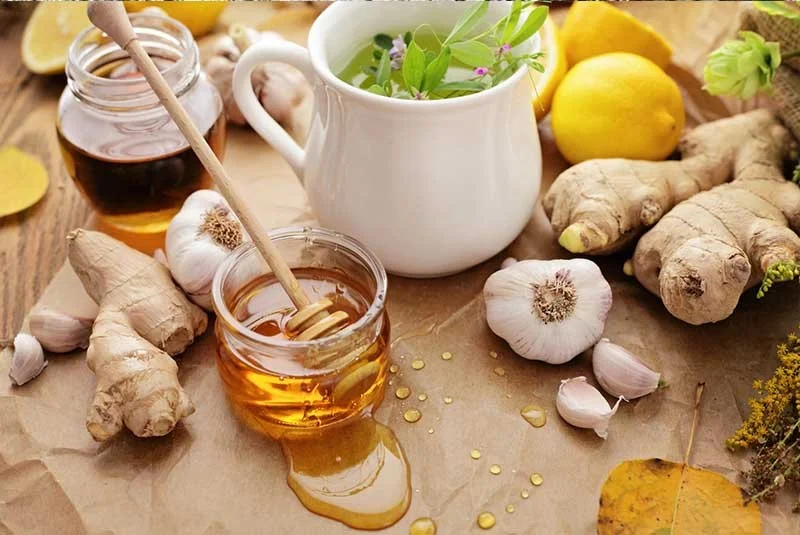
Uses:
- Cold & flu
- High blood pressure
- Immune system boost
Tip: Crush fresh garlic and let it sit for 10 minutes before consuming for max potency.
4. Aloe Vera: Skin’s Best Friend
Long celebrated in African and Indian medicine, Aloe Vera is known for soothing skin and aiding digestion.
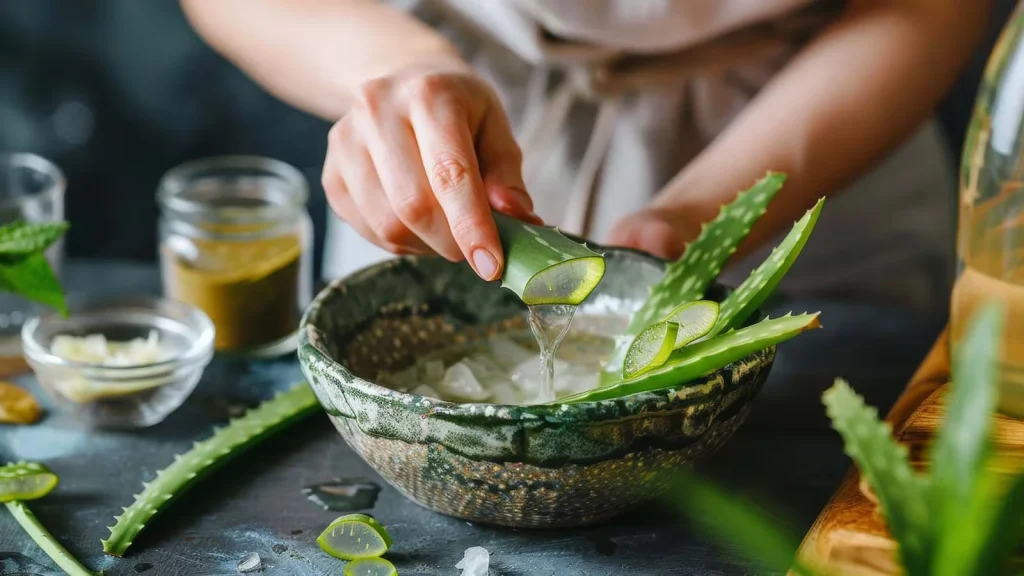
Best For:
- Burns and sunburns
- Acne and eczema
- Stomach ulcers
Usage:Use gel directly from the plant or consume aloe juice (in moderation).
5. Peppermint Oil Steam: Clear Those Sinuses
Peppermint oil contains menthol, a natural decongestant.

How to Use:Add a few drops to boiling water, cover head with a towel, and inhale.
Ideal For:
- Sinus congestion
- Headaches
- Cold symptoms
6. Ginger Compress: Pain & Inflammation Relief
Used in both Traditional Chinese Medicine and Ayurveda, ginger is a warming herb with anti-inflammatory effects.
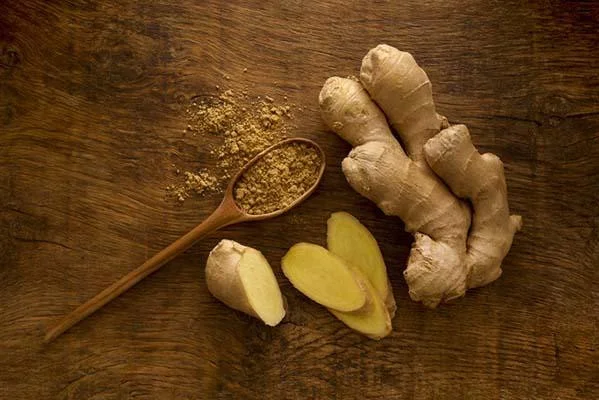
Use it for:
- Joint and muscle pain
- Menstrual cramps
- Digestive issues
How:Apply grated ginger wrapped in cloth to sore areas or drink as a tea.
7. Holy Basil (Tulsi): The Queen of Herbs
Revered in Ayurvedic medicine as the “Elixir of Life,” Holy Basil commonly known as Tulsi is celebrated for its adaptogenic properties and wide range of healing benefits. This sacred plant is not only spiritually significant in Indian households but also a scientifically recognized herb for promoting holistic well-being.
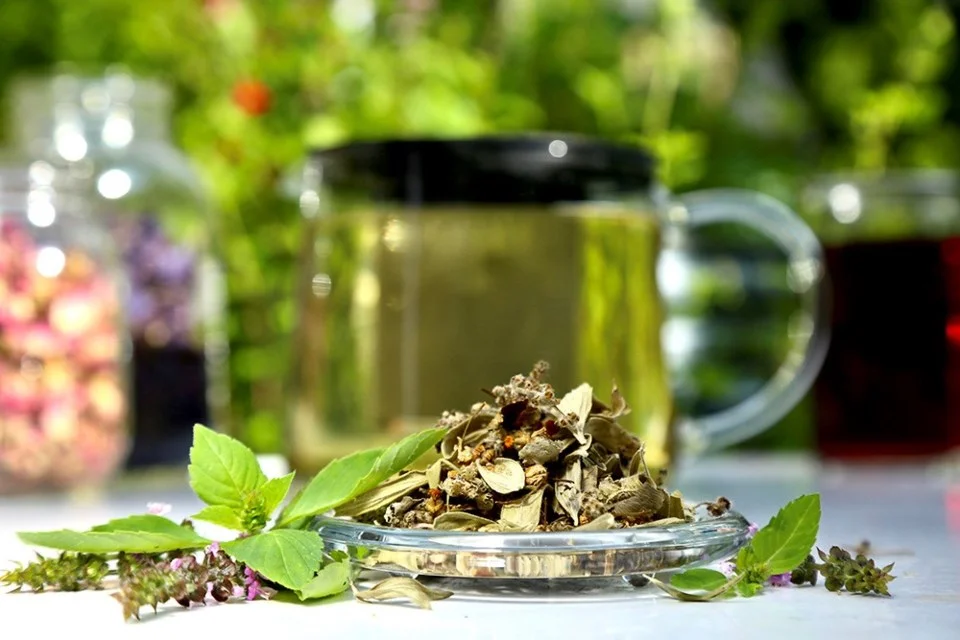
Key Benefits:
- Reduces Stress and Anxiety: Acts as a natural adaptogen, helping the body adapt to physical and emotional stress.
- Supports Respiratory Health: Offers relief from cough, asthma, bronchitis, and congestion due to its antimicrobial and anti-inflammatory effects.
- Balances Blood Sugar Levels: Helps regulate glucose metabolism, making it beneficial for individuals with insulin resistance or type 2 diabetes.
How to Use:
- Tulsi Tea: Steep fresh or dried Tulsi leaves in hot water for 5–10 minutes. Drink 1–2 cups daily.
- Tulsi Tincture: Take a few drops diluted in water, as recommended by a herbal practitioner.
- Chewing Fresh Leaves: In traditional use, 2–3 fresh leaves are chewed on an empty stomach in the morning.
Precaution:Though generally safe, pregnant or breastfeeding women should consult a healthcare provider before using Tulsi in supplement or concentrated form.
Holy Basil is truly a multi-purpose powerhouse bringing calm, clarity, and immune resilience in every cup.
8. Elderberry Syrup: Nature’s Immune Booster
A staple in European folk remedies, elderberries are rich in vitamin C and antioxidants.
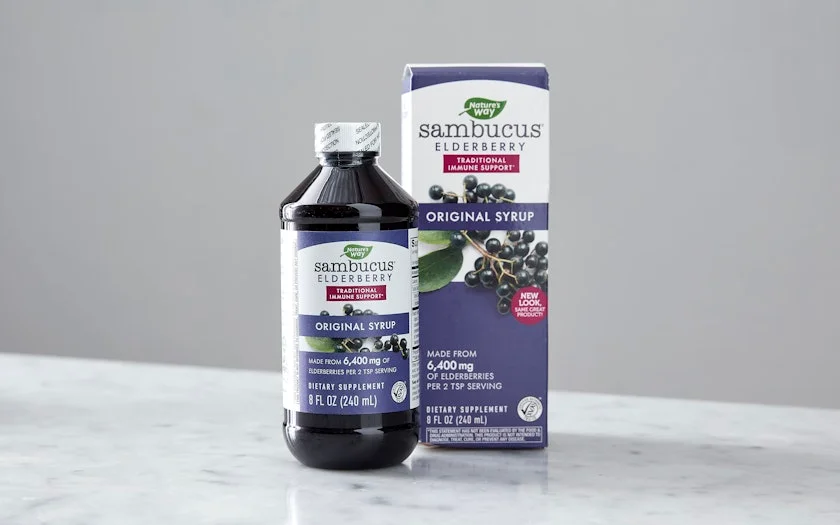
Effective For:
- Preventing and shortening colds
- Reducing inflammation
Note: Must be properly cooked; raw berries can be toxic.
9. Coconut Oil Pulling – Oral Detox Ritual
A daily Ayurvedic practice where you swish oil in your mouth for 10–20 minutes.
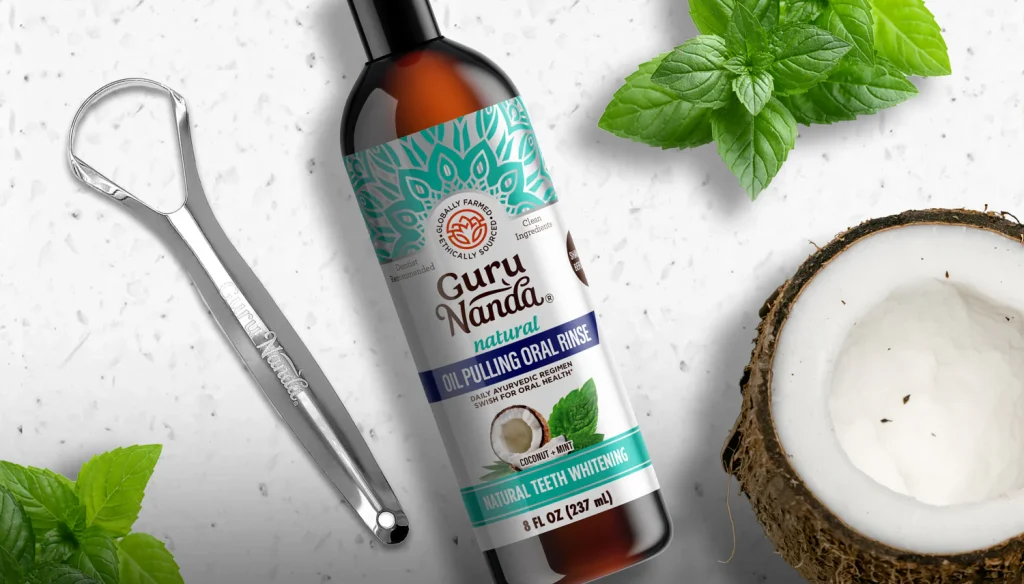
Claimed Benefits:
- Removes toxins
- Whitens teeth
- Prevents gum disease
How To:Use 1 tbsp of cold-pressed coconut oil; spit after swishing (don’t swallow).
10. Lavender Essential Oil: Stress Relief & Sleep
Used in aromatherapy, lavender is a natural remedy for mental well-being.
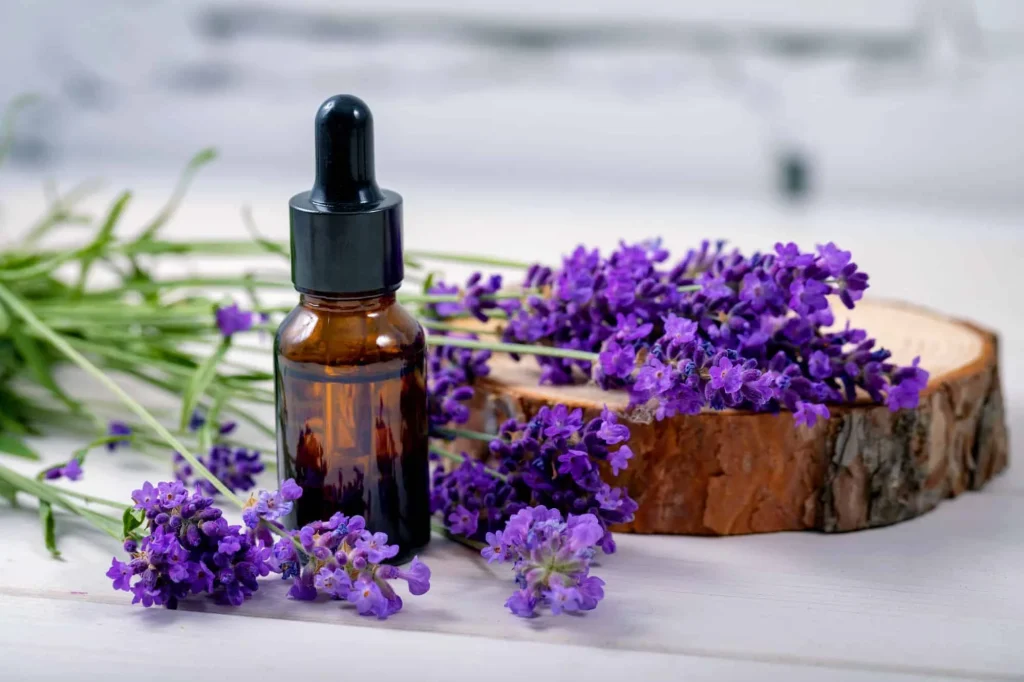
How To Use:
Diffuser, bath, or direct application (diluted).
Proven To Help With:
- Anxiety
- Insomnia
- Mild depression
Scientific Evidence Behind Pondershort Remedies
Unlike vague folk wisdom, many Pondershort natural remedies have credible scientific backing.
- Turmeric (Curcumin): Proven anti-inflammatory and antioxidant effects.
- Chamomile: Shown in studies to aid in sleep and reduce menstrual pain.
- Elderberry: Clinical trials show reduced flu symptoms and faster recovery.
- Garlic: Studies confirm its ability to lower cholesterol and fight infections.
Integrating Pondershort remedies doesn’t mean abandoning modern medicine, it means using natural methods that enhance your body’s natural healing.
Cultural Influence: Global Traditions Within Pondershort
Pondershort isn’t exclusive to one region. It draws from traditions around the world:
- Ayurveda (India): turmeric, tulsi, triphala
- Traditional Chinese Medicine: ginseng, licorice root, ginger compresses
- Native American Herbalism: echinacea, sage, black cohosh
- European Folk Healing: elderberry, nettle, lavender
Understanding these roots deepens appreciation for the remedies and fosters a respectful, inclusive healing approach.
Are Natural Remedies Always Safe?
Despite their natural origin, not all remedies are harmless. Always be cautious with:
- Dosage: Herbs like garlic or turmeric can irritate the stomach in large amounts.
- Pregnancy & Breastfeeding: Some herbs may affect hormonal balance.
- Medication Interactions: St. John’s Wort, for instance, interacts with antidepressants.
- Allergic Reactions: Patch test essential oils before use.
Tip: Always consult with a certified herbalist or your healthcare provider when in doubt.
How to Incorporate Pondershort Remedies Into Your Life
Start slow. Pick 1–2 remedies based on your needs.
- Morning ritual: Ginger tea or oil pulling
- Mid-day energy: Tulsi or peppermint tea
- Evening unwind: Chamomile or lavender oil bath
- Immune support: Turmeric milk or elderberry syrup
Bonus Tip: Keep a remedy journal to track what works and what doesn’t.
Internal Linking Ideas for Your Website
- Herbalism 101: A Beginner’s Guide
- Top 5 Natural Remedies for Anxiety
- DIY Herbal Apothecary at Home
- Homeopathy vs. Naturopathy: What’s the Difference?
- Eco-Friendly Wellness: Sustainable Living Tips
Frequently Asked Questions (FAQs)
Is Pondershort a real product line or a philosophy?
Pondershort represents a philosophy of healing naturally, though it may become a branded movement in the wellness space.
Can Pondershort remedies replace modern medicine?
Not entirely. They are complementary, not replacements. Use them to support mainstream treatments.
How soon can I see results from these remedies?
It varies. Some remedies like peppermint steam give immediate relief; others like turmeric build effects over weeks.
Are these safe for children?
Some are. Chamomile and ginger are generally child-safe. Always consult a pediatrician.
Where can I buy these remedies?
Local herbal shops, organic stores, or trusted online platforms like Mountain Rose Herbs, Gaia Herbs, or Amazon (check reviews and certifications).
Conclusion: Reclaiming Ancient Healing in a Modern World
The world of Pondershort natural remedies reminds us that healing doesn’t have to be complex or chemical-laden. By reconnecting with the earth, listening to ancestral wisdom, and respecting our body’s needs, we unlock a path to vibrant, natural health.
So whether you’re sipping turmeric tea, massaging with ginger oil, or lighting lavender candles, know that you’re engaging in a tradition far older and wiser than any pill.
Intermittent Fasting 101: Simple Tips for Real Results
Explore Nexus Globes for the latest news on tech, health, and entertainment.




